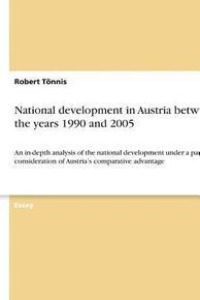
Liknande böcker
The nexus between institution and stochastic growth in selected Sub-Saharan African countries. Evidence from dynamic panel data analysis
Bok av Derese Kebede Teklie
Master's Thesis from the year 2016 in the subject Business economics - General, grade: Excellent, , course: Development Economics, language: English, abstract: Sub Saharan Africa economic growth shows a stochastic growth performance in which highly interrelated with faulty and fragile governance problems associated in the region. Accordingly, this thesis examines the contribution of formal institution explained by aggregated index for the six governance clusters measured by World Governance Indicator and individual level of each indicator on the stochastic growth behavior of selected SSA countries using data from forty two SSA countries over a period of 1996 to 2014. To examine the impact of institution and level of good governance, the study employed Arellano-Bond (1991) and Arellano-Bover (1995) dynamic panel generalized method of moments (GMM) technique of estimation. The estimated result suggested that variables such as foreign aid, public investment, consumption, imported capital good, inflation, control of corruption, rule of law, voice and accountability, political stability, government effectiveness, regulatory quality and the aggregate index governance measures (institution) are significant and positively contribute to stochastic growth performance in the region across each models. On the other hand, outward trade policy negatively contributes to SSA Stochastic growth behavior. In addition, the study surprisingly resulted that though foreign direct investment has no significant contribution in the study period its impact is negative in the region. A major policy implication arising from the results is that the advancement of institution and individual level of good governance are fundamental to the realization of sustained economic growth in SSA.







